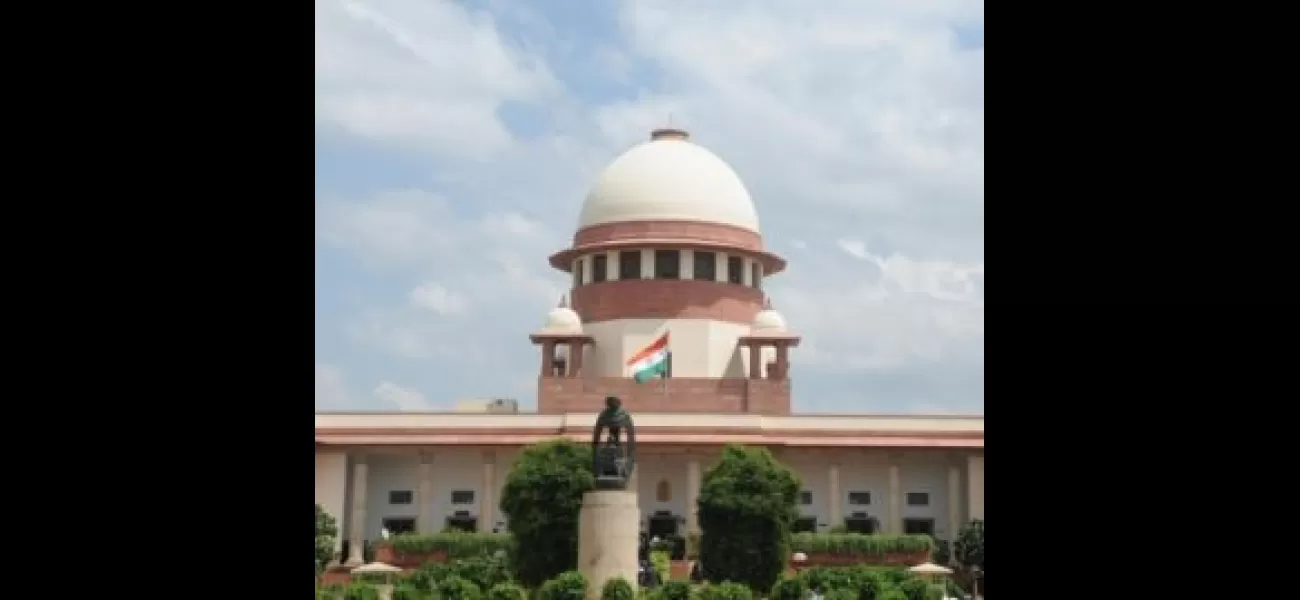The Chief Justice of India's bench is reviewing a petition to establish a national policy for free care of muscular dystrophy.
Supreme Court heard petitions from parents of children with muscular dystrophy, seeking a national policy for free treatment. Justices Chandrachud, Pardiwala, and Misra considered the plea.
August 10th 2024.

The Supreme Court of India recently took up a series of petitions from parents whose children are suffering from muscular dystrophy. These concerned parents are seeking the formulation of a national policy that would allow for free treatment of the disease. The bench, led by Chief Justice DY Chandrachud and Justices JB Pardiwala and Manoj Misra, heard the pleas and considered the urgent need for a solution.
During the hearing, the counsel representing the petitioners emphasized the dire situation, revealing that out of the 250 petitioners, five children have already lost their lives while ten more are currently in critical condition. The counsel stressed the urgency of the matter, pointing out that it has been ten months since the Court first issued a notice in the case, during which time several children have succumbed to the disease.
Back in October of 2023, the Supreme Court had issued a notice on the petition and requested assistance from Additional Solicitor General Aishwarya Bhati. The ASG requested for more time to file a response regarding changes in the Centre's policy and the funds allocated for treatment thus far. The bench granted the request and also asked the ASG to clarify the status of a similar petition that is currently pending before the Delhi High Court.
In March of 2021, the Delhi High Court had directed the Centre to provide an affidavit outlining its health budget for the past five years and whether any unused funds could be allocated for treating children with rare diseases such as Duchenne muscular dystrophy and Hunter's syndrome.
Muscular dystrophy is a genetic disorder that leads to progressive muscle weakness and loss of function in the legs, pelvis, and arms. It can result in children becoming wheelchair-bound and significantly shortens their life expectancy. In some cases, it can also affect the heart, lungs, spine, and brain.
The petitioners argue that despite the availability of diagnostic techniques, a lack of awareness and inadequate diagnostic facilities often lead to delayed diagnosis and treatment. Furthermore, the cost of treatment is extremely high and is only available at a few specialized centers, making it inaccessible to many families.
The PIL seeks to reclassify muscular dystrophy as a 'Special Category Rare Disease' rather than a 'Rare Disease,' in order to increase financial support under the National Policy for Rare Diseases, 2021. Additionally, it calls for private and government insurance companies to include muscular dystrophy in their insurance coverage schemes.
The outcome of this case could have a significant impact on the treatment and care of children with muscular dystrophy in India. It has the potential to provide much-needed financial relief and improve access to life-saving treatments. This is a pressing issue that requires urgent attention, and the Supreme Court's decision is eagerly awaited.
During the hearing, the counsel representing the petitioners emphasized the dire situation, revealing that out of the 250 petitioners, five children have already lost their lives while ten more are currently in critical condition. The counsel stressed the urgency of the matter, pointing out that it has been ten months since the Court first issued a notice in the case, during which time several children have succumbed to the disease.
Back in October of 2023, the Supreme Court had issued a notice on the petition and requested assistance from Additional Solicitor General Aishwarya Bhati. The ASG requested for more time to file a response regarding changes in the Centre's policy and the funds allocated for treatment thus far. The bench granted the request and also asked the ASG to clarify the status of a similar petition that is currently pending before the Delhi High Court.
In March of 2021, the Delhi High Court had directed the Centre to provide an affidavit outlining its health budget for the past five years and whether any unused funds could be allocated for treating children with rare diseases such as Duchenne muscular dystrophy and Hunter's syndrome.
Muscular dystrophy is a genetic disorder that leads to progressive muscle weakness and loss of function in the legs, pelvis, and arms. It can result in children becoming wheelchair-bound and significantly shortens their life expectancy. In some cases, it can also affect the heart, lungs, spine, and brain.
The petitioners argue that despite the availability of diagnostic techniques, a lack of awareness and inadequate diagnostic facilities often lead to delayed diagnosis and treatment. Furthermore, the cost of treatment is extremely high and is only available at a few specialized centers, making it inaccessible to many families.
The PIL seeks to reclassify muscular dystrophy as a 'Special Category Rare Disease' rather than a 'Rare Disease,' in order to increase financial support under the National Policy for Rare Diseases, 2021. Additionally, it calls for private and government insurance companies to include muscular dystrophy in their insurance coverage schemes.
The outcome of this case could have a significant impact on the treatment and care of children with muscular dystrophy in India. It has the potential to provide much-needed financial relief and improve access to life-saving treatments. This is a pressing issue that requires urgent attention, and the Supreme Court's decision is eagerly awaited.
[This article has been trending online recently and has been generated with AI. Your feed is customized.]
[Generative AI is experimental.]
0
0
Submit Comment





